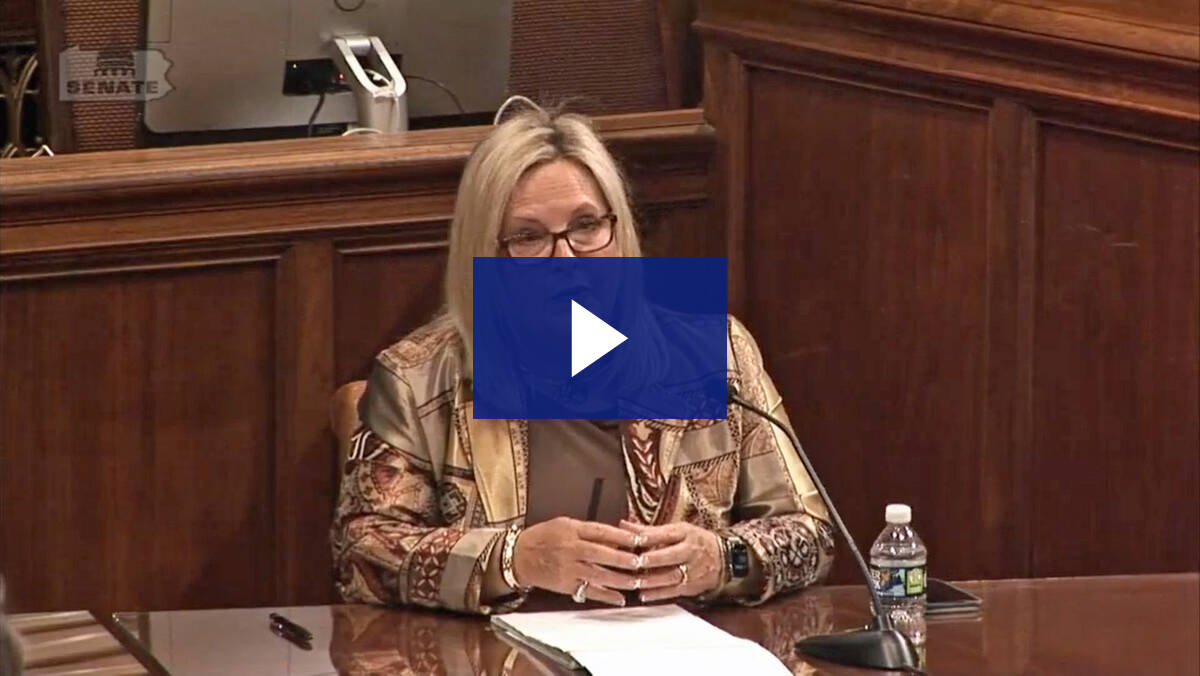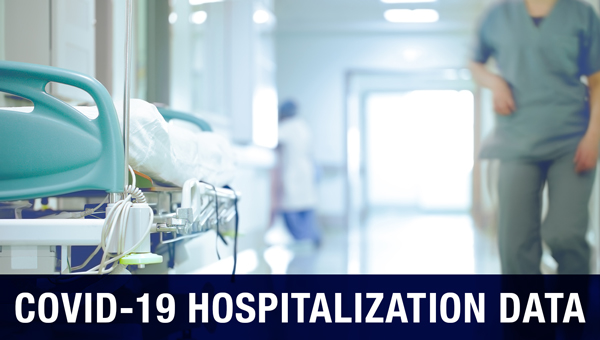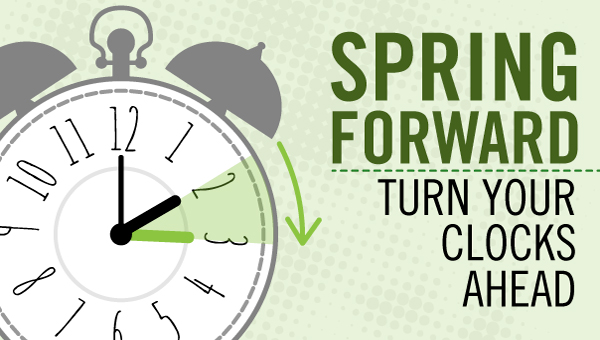
|
|||||
|
In this Update:
Senate Hearings on Proposed State Budget Continue
Work on reviewing Gov. Tom Wolf’s proposed $45.7 billion state budget continued this week with public hearings held by the Senate Appropriations Committee. The proposed plan was announced last month, and the state constitution requires a budget to be enacted by June 30. The governor’s plan would increase spending by $4.5 billion. Based on projections, this will create a $1.3 billion deficit in the following fiscal year and produce a $13 billion deficit by 2026-27. Wednesday’s hearing with the Department of Health explored the state of Pennsylvania’s public health systems. Acting Health Secretary Keara Klinepeter testified that many hospitals in urban and rural areas are in danger of closing under the financial strain imposed by two years of pandemic response. This week’s hearings also covered:
I had the opportunity to question Acting Secretary Meg Snead during the Senate Appropriations Committee budget hearing for the Department of Human Services. I felt it was important to raise awareness and question the proposed changes in staffing ratios for nursing homes. Nursing homes are already struggling and will not be able sustain an increase in mandates on their staff. Watch the video below for more details. You can find more information on these budget hearings, hearing video, livestreams and more at PASenateGOP.com. New Report on PA COVID-19 Hospitalization and Mortality
From March 1, 2020 through June 30, 2021, there were 120,329 COVID-19 hospitalizations in Pennsylvania hospitals. Pennsylvania residents were hospitalized at a rate of 91.5 hospitalizations per 10,000 residents. More than half of these admissions occurred from November 2020 through February 2021. There were peaks in admissions in April 2020 (8,391), December 2020 (24,506) and April 2021 (10,641). While in the hospital, 10.2% of the patients required mechanical ventilation and 12.3% of patients died, while 14.9% were readmitted within 30 days. The average length of stay was 8.1 days. Older residents consistently had higher hospitalization and in-hospital mortality rates. You can read the findings at www.phc4.org. Honoring the Female Faces of the Front Lines for Women’s History Month: Tell Us Your Story
March is Women’s History Month and this year’s theme is Providing Healing, Promoting Hope, a tribute to the work of caregivers and female front-line workers throughout the pandemic. In the spirit of this achievement, the Pennsylvania Senate wants to hear the stories of “Female Faces of the Front Lines.” If you are a female medical provider, caregiver, EMS or emergency worker or you know someone who is, we want to hear from you. Just follow the directions at the link and we’ll share your inspiring story on social media. Resources to Help with Problem Gambling
March is National Problem Gambling Awareness Month, and resources are available to help with a gambling addiction. The Council on Compulsive Gambling of Pennsylvania provides valuable information on compulsive and problem gambling, including how to know if you might have a problem, finding counselors and more. The Council operates the Pennsylvania Problem Gambling helpline, 1-800-GAMBLER (1-800-426-2537). More resources, including a 24-hour chat service, are also available at www.pacouncil.com. Turn Clocks Ahead One Hour This Weekend
Daylight saving time will begin on Sunday, March 13, at 2 a.m., so it’s time again to turn clocks ahead one hour Saturday night. This is also a good time to check batteries in smoke detectors and carbon monoxide alarms, which should also be replaced every 10 years. Daylight saving time will end on Nov. 6. |
|||||
|
|||||



Want to change how you receive these emails? 2026 © Senate of Pennsylvania | https://senatorjudyward.com | Privacy Policy |





